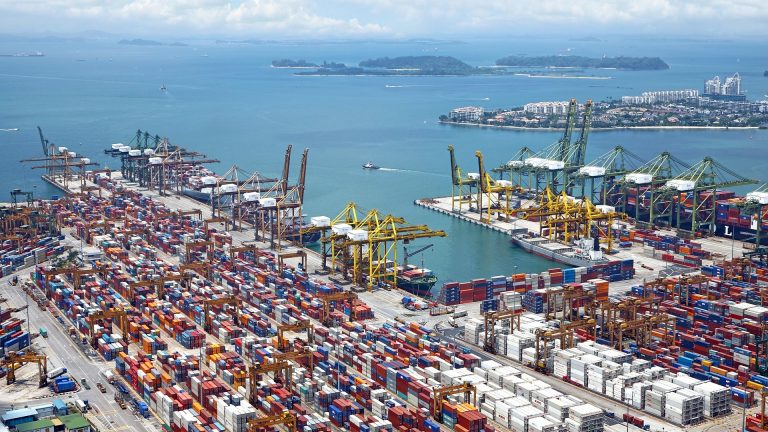The European Union has revealed a global investment plan which it presents as a “true alternative” to Beijing’s trillion-dollar Belt and Road Initiative (BRI). Called the Global Gateway, the EU plans to invest 300 euros (US$340 billion) into the project.
The EU’s project comes as the BRI is being accused of putting participating countries under immense financial stress, eventually pushing them into a state of default. While announcing the Global Gateway Plan, European Commission President Ursula von der Leyen stated that countries need “trusted partners” to design projects that are sustainable. The EU wants to show that a democratic approach can deliver projects aimed at boosting global health security and tackling climate change in developing nations.
“We want to make Global Gateway a trusted brand that stands out because of high quality, reliable standards and high level of transparency and good governance… We are deeply convinced that this will ensure that investment makes a real difference on the ground. And that this is done in a sustainable way,” Von der Leyen said.
Global Gateway will make investments in various sectors like transport, energy, digital, and health. The EU plans on offering financing at “fair and reasonable” terms to prevent debt-taking nations from suffering any financial distress. In return, these nations will have to adhere to the rule of law as well as uphold human rights, IP rights, and workers’ rights. The EU plans to tap into the European Fund for Sustainable Development Plus. The initiative will also seek to arrange private capital for the various projects.
In an interview with Bloomberg, Michael Clauss, Germany’s ambassador to the EU, said that the project can boost the international influence of Europe.
Success
You are now signed up for our newsletter
Success
Check your email to complete sign up
“Global Gateway has the potential to turn the EU into a more effective geopolitical player… For many partner countries, the offer of a rules-and-values-based cooperation at eye level will be an attractive alternative to the Chinese Belt and Road initiative,” Clauss said.
Last month, the Chinese ambassador to the EU, Zhang Ming, announced that Beijing would welcome the Global Gateway as long as it is not used as a geopolitical tool. In an article published in September, Chinese state-backed media outlet Global Times characterized Global Gateway as “likely inspired” by the BRI project, which demonstrates the “effectiveness” of the infrastructure project.
Cui Hongjian, director of the Department of European Studies at the China Institute of International Studies, told the media outlet that Global Gateway could pose risks to BRI projects in Europe and elsewhere.
Global Gateway is developed on the idea that the EU can provide better standards than communist China in infrastructure projects. “And this could mean some Chinese BRI project in EU could face intensified scrutiny, subject to more reviews, particularly when an anti-China party holds office in a partner country,” Cui stated.

















